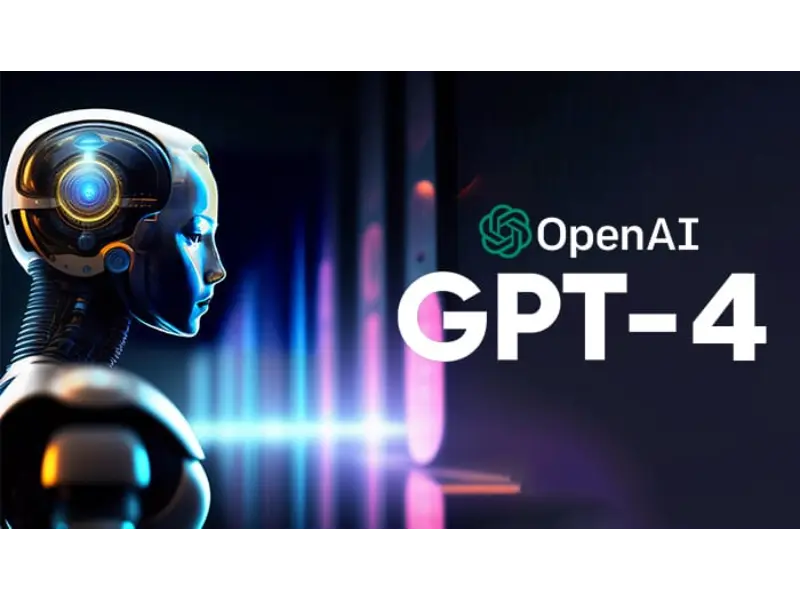- OpenAI has released an update for GPT-4 Turbo, which solves the “laziness” issue in previous versions and introduces new AI models, while also lowering API access costs.
- By improving GPT-4 Turbo and adjusting its pricing, OpenAI has actively responded to user needs and is committed to maintaining a leading position in the field of artificial intelligence.
The evolution of GPT-4 Turbo and the accompanying pricing adjustments signal OpenAI’s proactive approach to staying competitive in the rapidly evolving AI landscape. These developments not only cater to the existing user base but also pave the way for broader adoption of AI technologies across diverse applications and industries.
Complaints sparked by GPT-4’s inactivity
Many users of the ChatGPT platform have voiced their frustrations over the frequent refusal of the chatbot to complete requested tasks, attributing this issue to the lack of updates in GPT-4. However, OpenAI’s updates are specifically targeted at GPT-4 Turbo, a more widely utilized version of GPT-4 trained on the latest information available as of April 2023, and only offered in preview.
Users who continue to utilize GPT-4 based on data available before September 2021 may still encounter similar performance issues. OpenAI’s post revealed that over 70% of GPT-4 API users have transitioned to GPT-4 Turbo due to its enhanced knowledge base. The company has indicated plans to roll out further updates for GPT-4 Turbo over the coming months, including the full launch of GPT-4 Turbo with Vision, enabling users to execute multimodal prompts such as text-to-image generation.
Introducing new AI models and pricing adjustments
OpenAI has also introduced smaller AI models called embeddings, defined as “digital sequences representing concepts in content such as natural language or code.” These models aim to assist applications using retrieval-augmented generation in identifying relationships between different content accessed from databases. The new models, namely text-embedding-3-small and a more powerful version called text-embedding-3-large, have been released.
In line with the company’s ongoing adjustments to its models and pricing, OpenAI has unveiled new models while reducing the cost of API access—a development primarily of interest to developers but also indicative of potential future consumer choices.
Also read:AI in music therapy: How personalized harmonies can heal better and quicker
Price reductions and model updates
GPT-3.5 Turbo, the model commonly interacted with through ChatGPT, has now become an industry standard and a popular API for many tasks due to its lower cost and faster speed compared to GPT-4. As a result, paying users are set to benefit from a 50% reduction in input prices and a 25% reduction in output prices, with input priced at $0.0005 per thousand tokens and output at $0.0015 per thousand tokens.
As users attempt to utilize these APIs for text-intensive applications, such as analyzing entire papers or books, these markdowns become crucial. OpenAI is steadily lowering prices to ensure that its clients remain engaged, even as open-source or self-managed models catch up with its performance.
GPT-4 and enhanced user experience
The latest iteration of GPT-3.5 Turbo, version 0125, features various improvements, with OpenAI acknowledging relatively minimal noteworthy enhancements compared to the previous version (0613). Similarly, GPT-4 Turbo has received a new preview model, also labeled 0125, addressing the previously observed “laziness” in completing coding tasks.
Although this model remains in preview mode, the envisioned GPT-4 Turbo (i.e., GPT-4 V) is slated for a comprehensive launch in the “coming months.” Additionally, OpenAI has introduced new and improved text embedding models tailored for technical professionals, along with a new version of the free moderation API capable of identifying potentially harmful text.
In conclusion, OpenAI’s efforts to address performance issues and enhance user experience reflect the company’s commitment to advancing AI technology and ensuring its accessibility to a wider audience.
Also read:How criminals used AI face apps to swindle users: A China case study exposes the risks
The updates from OpenAI are a clear indication of the company’s responsiveness to user feedback and its dedication to refining AI models for improved performance. By rolling out comprehensive updates for GPT-4 Turbo and introducing new pricing adjustments, OpenAI is poised to maintain its position as a leader in the AI industry while addressing the evolving needs of developers and consumers alike.

